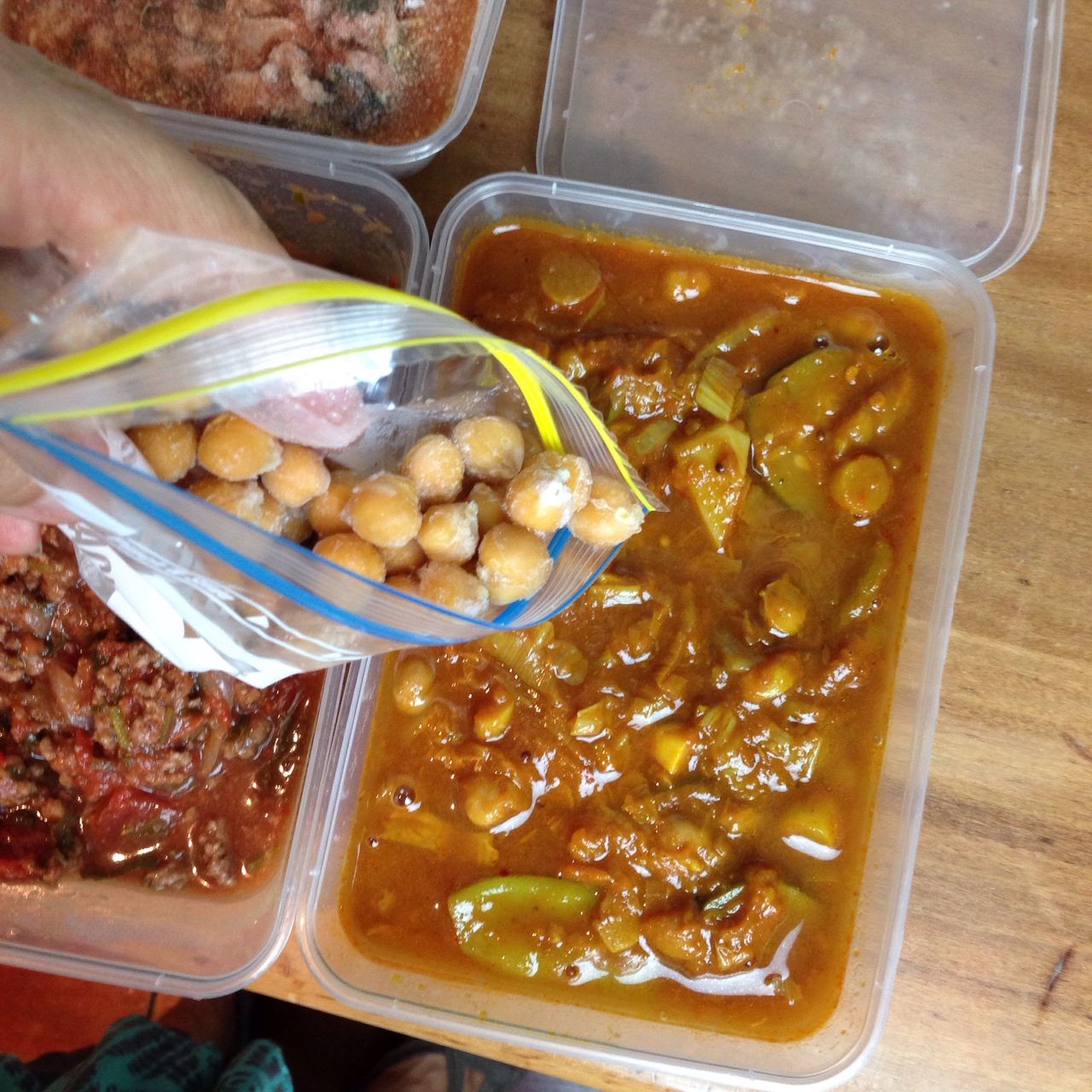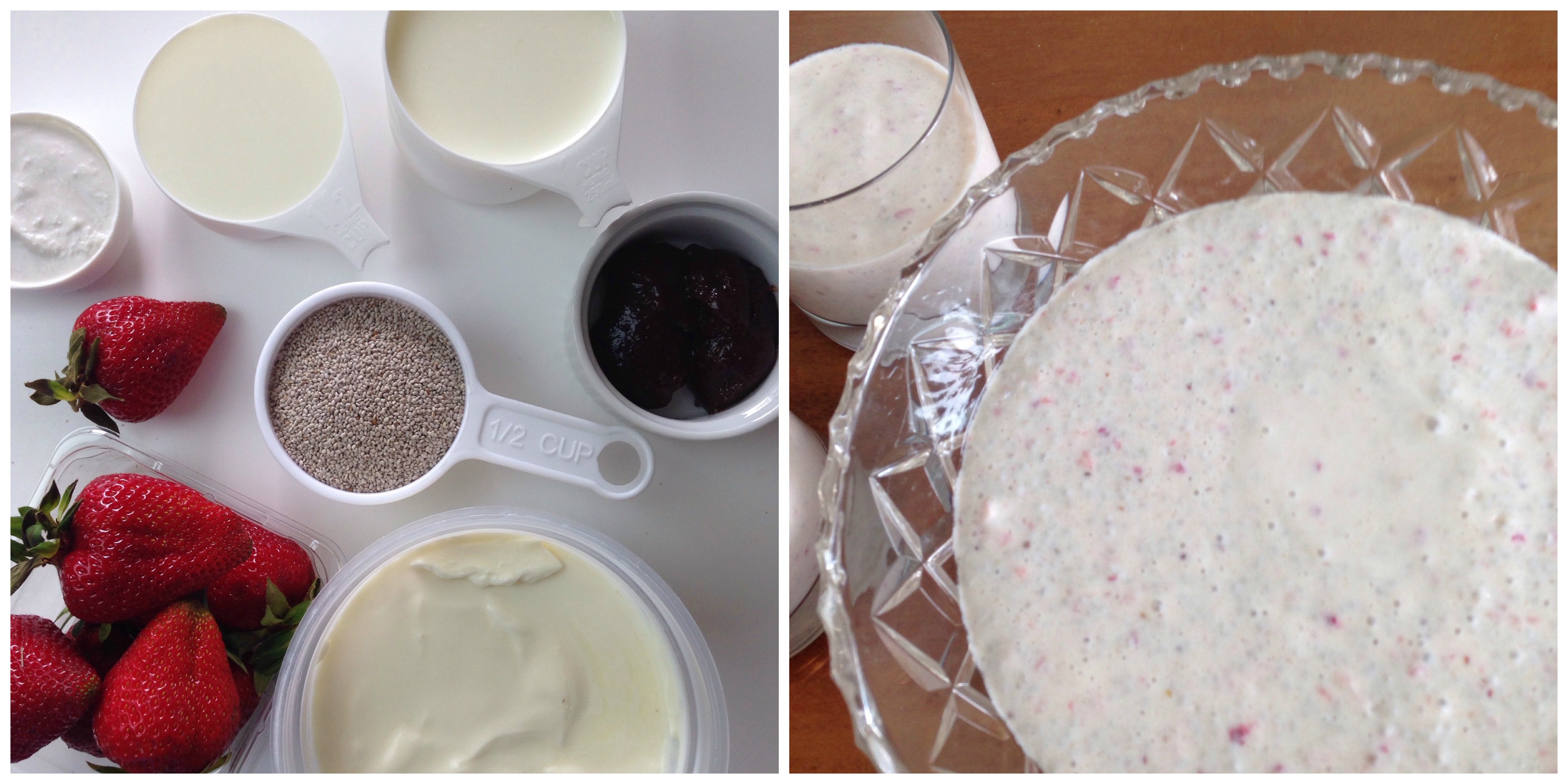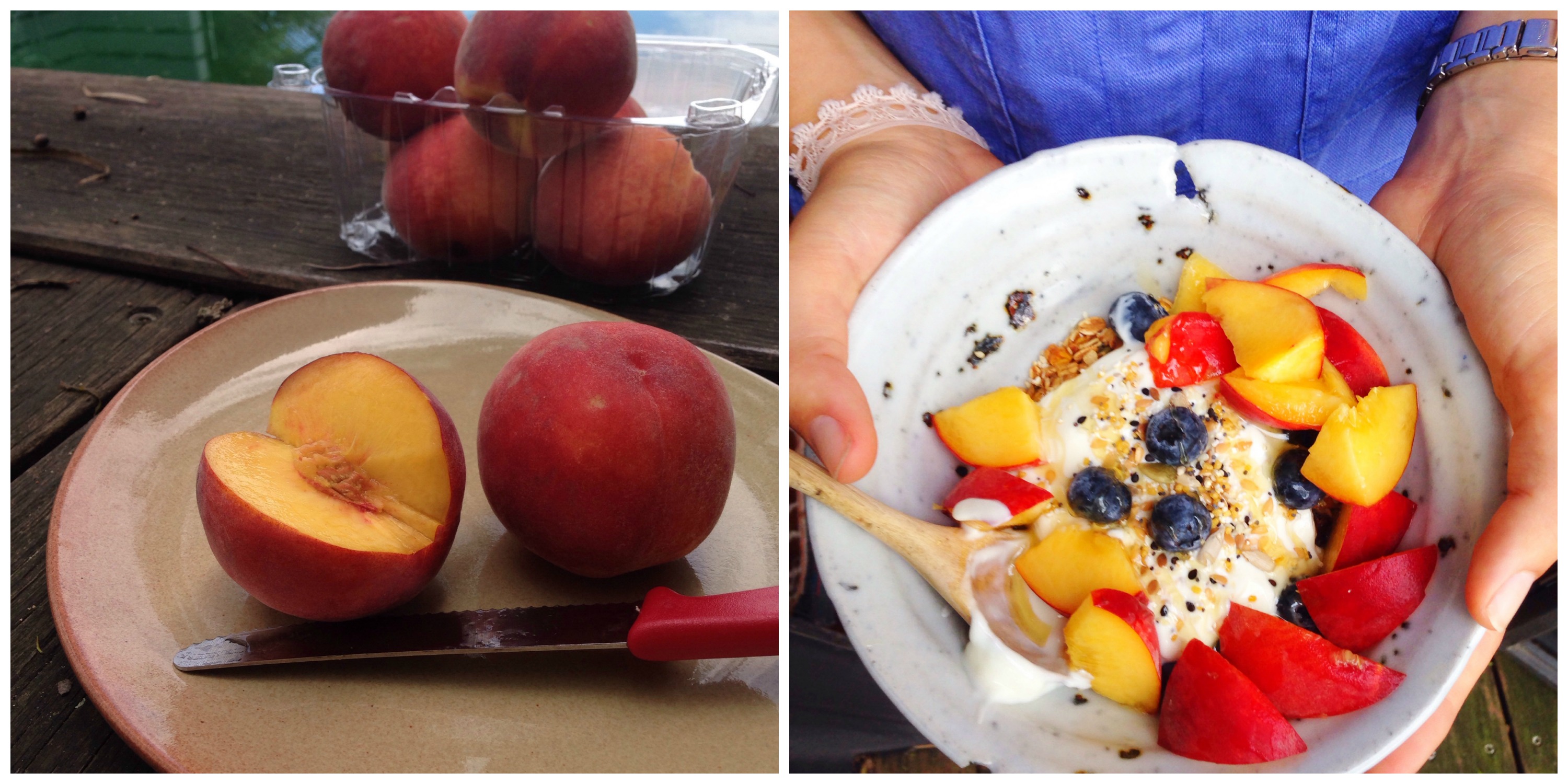What I’m eating this week

It seems people are always curious to know what a nutritionist really eats! Do they practice what they preach? Do they have the odd weakness like everyone else? I guess that’s why friends or other folk I meet often ask me what I have for breakfast/lunch/dinner or what I’m cooking up at the moment. So I thought I’d jot down three things I’m into and how they help me fight off age-related weight gain and keep me healthy and happy. I hope they help you the same way.
Canned chick peas
I’m using canned chick peas as an easy way to boost my intake of legumes. Yes, I could buy dried and then soak and boil them myself but I’m busy and the canned ones offer similar nutrient benefits to those I’ve cooked from scratch.
Legumes are rich in fibre (beware, start with small quantities or else your digestive system will rebel!), provide protein for vegetarians, B vitamins and minerals such as potassium needed for nerve function and fluid balance.
Their carbs are ‘slow carbs’ or low GI so don’t create an insulin spike which would otherwise call for more insulin. All good for nutrition plus they’re gluten-free if you’re cooking for someone with coeliac disease.

The only negative for me is the size of the can! I find the standard 400 g can a tad too large – too many chick peas to ‘hide’ in a beef curry and too many for my favourite pumpkin-fetta-pine-nut-chick-pea salad.
So I’ve started freezing the unused drained chick peas in small quarter-cup portions in snap-lock bags. (Hint: remember to drain well in a colander or on kitchen paper if you do this). Then I can simply pull a bag out of the freezer and add them frozen to a casserole or curry at the end. Easy!
Chia pudding with berries
I know chia has taken the food world by storm and its high nutritional profile has many hailing it as the latest and greatest ‘super food’. You can read my overview of its oil content, fibre and protein levels in my earlier Review.

I’m not a huge fan of the Raw Food movement as I feel only 50 percent raw in your diet is necessary, not 100 or even 75 percent. However I found a number of Chia puddings via the “Rawists” I follow on Instagram. They are incredibly quick and easy and if you’re thinking of whipping up a chia pudd, you don’t need a formal recipe for success. Just use my handy rule of thumb:
Mix ½ cup raw white chia seeds to 2 cups (500 mL) of liquid.
The liquid can be regular cow’s milk or, if you prefer, soy, almond or rice milk. Add 1 tablespoon sugar, honey or agave for sweetness (optional) plus 3-4 fresh strawberries OR a handful of fresh blueberries (frozen mixed berries are fine if fresh are not in season).
How to make:
I throw everything into my food processor and whirl for one minute. Then pour the chia-milk mixture into 4 squat glasses or 4 smallish individual bowls. Leave in fridge for 30 minutes to set. Before serving, I top with berries (blueberries, blackberries, sliced strawberries etc.).
Best of all, you can make it up ahead of time and have it sitting covered ready in the fridge for minimum fuss.
Play around with my ratio. Use less chia if you want a less-firm custard. Sure beats gelatine or junket tables for ease. And you get the nourishment from a whole food.
Yellow nectarines
To me, summer means stone fruit. I’m loving the yellow nectarines at the moment but peaches , plums and apricots are equally sweet and juicy. Forget apples and citrus for now.

I slice up wedges of yellow nectarines over my morning muesli or make a quick dessert over yoghurt (sometimes I slice up bananas, strawberries or passionfruit as well, depending on what I have on hand). Or just eat as a snack.
Yellow nectarines and peaches give us beta-carotene, which is converted to vitamin A in the body and used for eyesight and proper growth in children. In addition, you get fibre, potassium and a little vitamin C.



